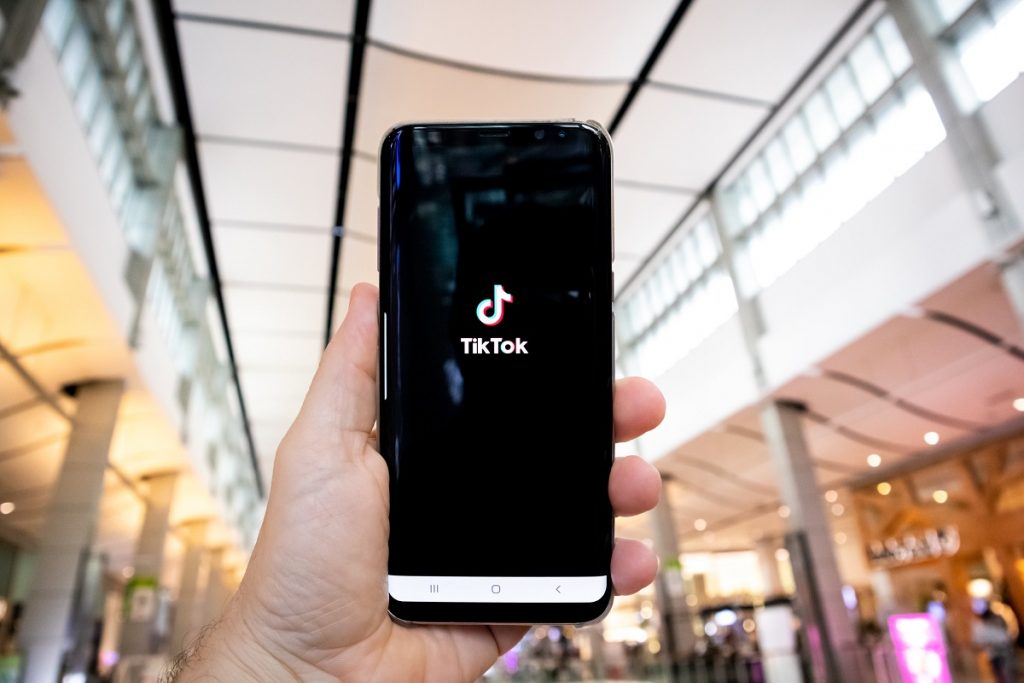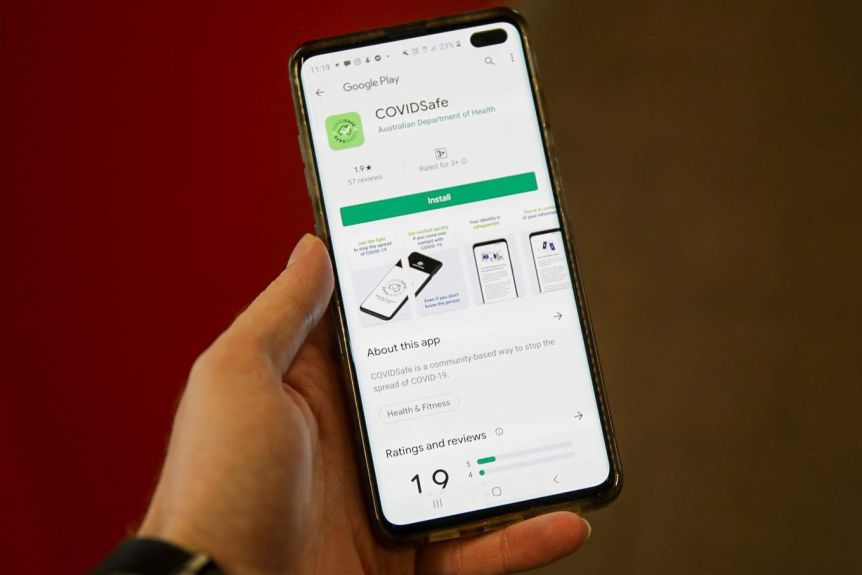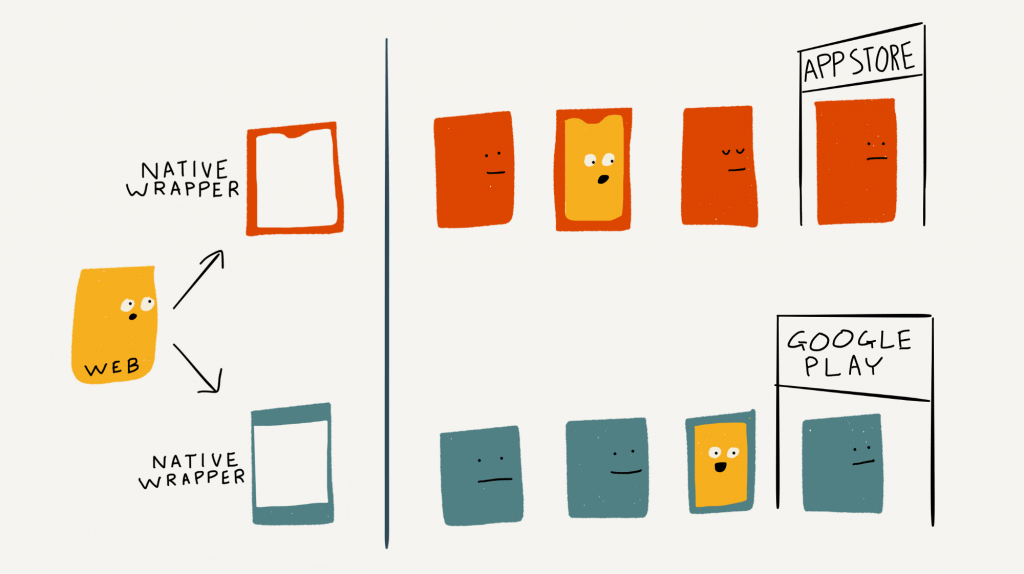It seems even in such a scientifically mature industry as Technology, particularly mobile app development services, people are not bored with this practice of fortune-telling. Remember the hype of smartphones ten years ago? People kept saying that PC is a dinosaur, and it’s gonna end soon. You can check out this piece from Fox News, and this from MIT Technology Review. But then what? Desktop ain’t going anywhere; mobile devices don’t replace it and is mobile app development dying? Kira Wampler, in an interview with McKinsey, lists this as one of the myths we’re having in the industry.

People are spending more time with electronics. On the weekend, people use the mobile app because they’re at open houses. During the week, they use the desktop, because they’re working on their home-buying search or their mortgage. And some things, like going through a mortgage process, are extremely hard to do on a mobile device.
Now the doom and gloom prophecies about the death of mobile apps are once again spoken up by the smart-asses. But is it true that mobile app development services are dying?
No, Mobile App Development Services Are Not Gonna Die.
So, where do these prophecies come from? Try googling the keyword “is mobile app development dying”, and you might come across loads of articles and videos spreading it. One notable advocate of this idea is the polarizing figure, Patrick Shyu.

He keeps repeating the fact that users only use the top ten apps that are owned by huge multi-billion dollar companies on a regular basis, and thus it’s impossible for startups and small service providers to compete with them. He then concludes that the age of apps is pretty much over.
It’s not difficult to point out the fallacies in Patrick’s argument, though. It’s even easier to find sources that try to convince us the other way around. When it comes to the discourses over the potentiality of new technologies, we could see different, even contrasting, motives across the board. Those who could take advantage of the news will promote it; those who could not step into it will resist it.
And the death of mobile apps is no different from the exile of Britney Spears in popular cultures in the midst of the 2000s; it’s the hype that we are all lured into, but it does not necessarily come to pass.
Recommended reading: What is the Future of Frontend Web Development?
1. The rise of Tik Tok itself is a myth-burster
This catchphrase of “mobile apps are dead” is not new whatsoever. It began even in 2016 or 2017 when TikTok was first launched. And if that logic works, then TikTok would have suffered a really tough time gaining a certain market share in the presence of big-brand names in the mobile network. But Tik Tok was quite quick in climbing up the ladder and became one of the most popular mobile apps being used worldwide. Hence, it’s not true that there’s no room for new stars.

What is true is that the market is saturated. And we’re no longer in the state where we can just deploy a new app and expect that people are gonna come and download it from the app store. If we want to reach a lot of people, it takes certain efforts in marketing. The previous failure of many apps could be attributed to poor market research, lack of originality, or the insufficient quality of the app itself.
Recommended reading: iOS and Android App Development: Market and Development Comparison
2. But still, mobile app development services leave a lot to be desired
Having said that, I’m not claiming that the disruption of mobile app development services is impossible. Rather, I’m saying that there are correlative situations that do not allow us to draw an assertive conclusion on the death of apps. Even if it really happens, it’s not gonna be an overnight transformation. And thus we still have time to get adapted to it.
And the stagnation of app, if it does exist, may result from the shortcomings of native apps, that is to say, the cost of mobile app development and maintenance, the divided accessibility (through apps and through websites), the high friction in downloading and installation.

Recommended reading: 5 Benefits of Mobile Health Apps in the Future
We all know that it’s expensive to hire app development companies to publish an app on three platforms, iOS, Android, and desktop, at the same time. What you put into your apps cannot be indexed by search engines, and thus those who reach out to you through Google cannot be funneled into apps. Your conversion would then be split, and your investment in distribution must be doubled. Also, the process of downloading and installing a new app might be a little inconvenient because it requires storage space and takes time.
Those are the pain points that make business people reluctant to invest in apps, and the developers concerned about the substitution.
Recommended reading: Web Application Development Cost: A Brief Outlook
Native Mobile App Development Dying?
So, what’s the future of native apps, really?
Because native apps still have so much room for improvement, people are turning to new technologies that could provide radical solutions, specifically hybrid apps, progressive web apps, or any other “universal”, cross-platform, non-native solutions.
Mobile devices are getting stronger, and new web technologies have been introduced, so it is totally possible to bridge the gap between mobile and desktop, websites and native apps (although these are somewhat false dichotomies just like website vs web application).

Progressive Web Apps (PWAs), for example, could reach the same level of interactivity and functionality as native apps, yet it requires less storage space, less effort in installation, and can run across different devices. And business people like it because it is economical. And since PWAs are basically websites, they are accessible to both humans and search engines. That’s why Google supported it.
FURTHER READING: |
1. Why Google Advocates Progressive Web Apps? |
2. 6 Best Progressive Web Apps Examples (PWAs) Over the Past Decade |
3. Progressive Web App Tutorial for Beginners in 2022 |
But just like PC, mobile app development services will have their own place in the market even 10 years later. Because we all know that there is something that PWAs cannot carry out yet and only native apps can. Designveloper hopes this article can give you the knowledge to answer the question “Is mobile app development dying?“





















